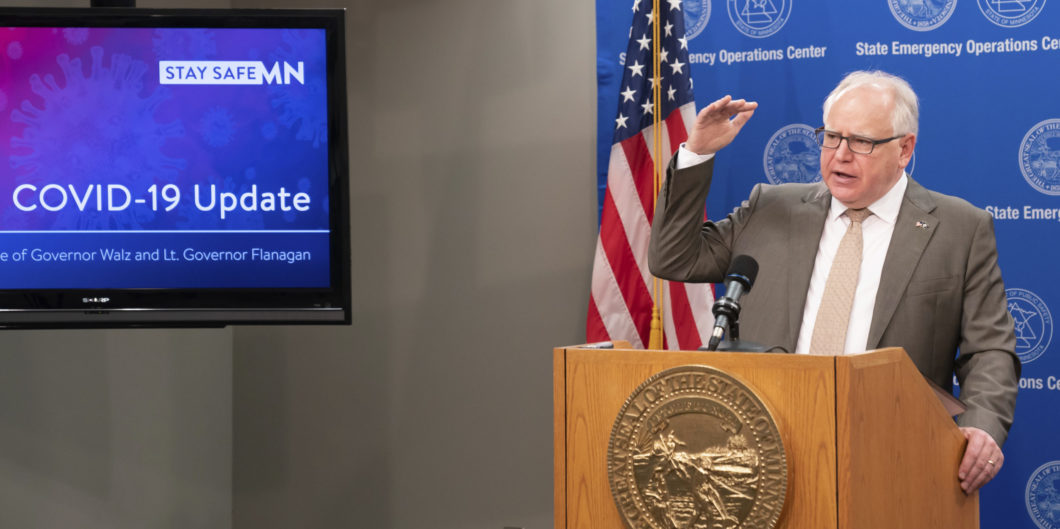Three recent cases challenge the statutory and constitutional bases of legislative delegation to executive branches.
A Time to Disobey
There are two ways to think about the current shut-down and its effect on religious liberty. One way views the matter through the lens of equality, the other through the lens of liberty. As a matter of equality, the current rubric is the Supreme Court’s decision in Employment Division v. Smith that justifies government’s safe haven of imposing burdens by way of “neutral and generally applicable laws.” Stay truly neutral, the Court tells local officials, and you may burden religion to the point of extinction. During the current pandemic, it has been rather obvious that many local governments have not acted neutrally or imposed truly generally applicable laws and regulations, and the cases circulating in federal court will likely succeed. Or, most likely, they will result in local governments backing down as the country slowly reopens.
One of the more striking examples is Minnesota Governor Dan Walz’s edict recently allowing “non-essential” businesses, including casinos, to re-open while continuing the restrictions he placed on religious institutions. That has prompted both the Minnesota Catholic Conference and The Lutheran Church-Missouri Synod in Minnesota to file suit against the governor, demanding that the ban on religious worship be lifted. At the same time, the Bishop of Minneapolis has told the Governor that his churches will be open for services in defiance of his order. The legal prohibitions placed on religious worship might be causing Christians to see how reduced their condition is not only within the Smith framework but in a secularized America.
Requiring truly equal treatment is helpful for minorities, religious or otherwise. And Christians now increasingly find themselves in this class. But even-handed suppression of liberty remains a suppression of liberty nonetheless. One’s liberty, of course, has limits. But the American tradition of constitutional liberty demands something more than even-handed oppression. Freedom is hazardous. Liberty does not exist in a zero-risk tolerance state. If a presumed though unquantified risk of harm suffices to extinguish liberty in one area, it will in another. And there are many harms and many risks in life. You may think the current pandemic justifies deference to regulations severely limiting (and sometimes extinguishing) previously permitted activities. Fine. But when this pandemic finally leaves the stage, waiting in the wings are others with their own list of harms that they believe justify severely limiting or extinguishing previously permitted activities (desired restrictions on speech being first in line). On what basis will you resist those efforts?
The American tradition of constitutional liberty does not ignore the existence of harm, or the possibility that some risks cannot be tolerated. It does, however, impose an obligation on government to justify its abridgment of liberty. What lawyers and judges call “strict scrutiny,” involves placing the burden on the government to explain why the need for regulation is compelling and how the proposed regulation advances that compelling interest in a manner that is no more burdensome than necessary. Absent this obligation, government officials may extinguish liberty for no discernable reason whatsoever beyond a desire to increase political popularity with key constituencies. Or as might be evident in Minnesota, the governor’s indifference towards religious worship: Who really cares when they reopen?
One would hope courts would enforce constitutional text regardless of current pandemics or religious demographics or personal judgment about the value of religion.
This is the real problem with the current “equality” approach of the Supreme Court in matters involving religious liberty. Although never justified in terms of text or original understanding, the Smith approach at least held out the possibility of minimal burdens on religion so long as society remained sufficiently religious. Under these conditions, “neutral” laws severely burdening religious exercise will prompt significant political opposition and hopefully result in more narrowly tailored laws. Unfortunately, when religiously motivated activity is primarily the domain of minorities, political “herd immunity” disappears.
No doubt, determining when conditions do or do not justify imposing a burden on liberty is a task that should give pause to the wisest of justices. But so too is the task of determining when race-based admission programs are justified, or when states have justified their definition of marriage. If justices are justified in engaging in such calculations, it is because they are obligated to do so by the text of the Constitution. Does the text of the Free Exercise Clause justify special judicial scrutiny of laws burdening religious freedom? I am confident that it does, at least to the degree that it justifies invalidating laws that impose undue burdens on a women’s right to obtain an abortion prior to viability. To claim otherwise involves a value judgment, not an interpretation of text.
But value judgments are everywhere in American constitutional law. If we as a society value abortion more than religious freedom, who are the courts to demand we do otherwise? One would hope courts would enforce constitutional text regardless of current pandemics or religious demographics or personal judgment about the value of religion. In fact, the current Supreme Court is divided both on the meaning of the text and the value of religiously motivated activity and speech. For the moment, therefore, the ball is in the court of religious believers. It seems a particularly opportune moment for believers to demand more than formal equality and refuse to accept the possibility of government-imposed extinction. Put another way, I think this is an opportune moment for civil disobedience.
The Archdiocese of St. Paul and Minneapolis has taken the first (overt) step by disobeying the governor’s edict and simply moving forward with carefully constructed plans for resuming public worship. Other churches and religious groups have already made similar moves. Are some of these moves dangerous to the point of justifying fines or imprisonment? Perhaps. Let the government prosecute, let the believers submit to the prosecution, and let courts do their job of requiring government officials justify their abridgments of our very textual constitutional liberties.


